11 Minutes
The fifth edition of Going Global at Rockit Vilnius opened with an unusually grounded promise: that the story of where a company comes from is not a footnote but a tool. Not a marketing ornament, but an operational advantage. And for Lithuanian companies — especially those growing from Vilnius — that idea has shifted from an aspiration to a measurable trend.
The panel, titled “Made in Vilnius: Turning the Origin Story to an Advantage,” brought together three representatives from companies that now operate across borders:
Laura Tyrylytė, Head of PR at Nord Security;
Juozas Nainys, CEO and co-founder of Atrandi Biosciences;
Virgilijus Kupinas, Marketing Director at BIOCITY;
and moderator Lukrecija Giedraitytė, business journalist at Delfi.
What unfolded over the next hour was less a polished playbook and more an honest autopsy of how origin, identity, and geography matter — sometimes quietly, sometimes bluntly — when a company tries to scale worldwide.
Rockit’s premise: global ambition begins in small places
Rockit’s introduction set the tone: global scale is no longer an optional ambition for Lithuanian startups. The ecosystem is no longer early-stage; it is reaching its second and third wave. The organizers emphasized that many globally minded companies begin in compact cities, where proximity fuels speed and talent concentration creates unexpected leverage. Vilnius — small, direct, easy to navigate — fits that pattern.
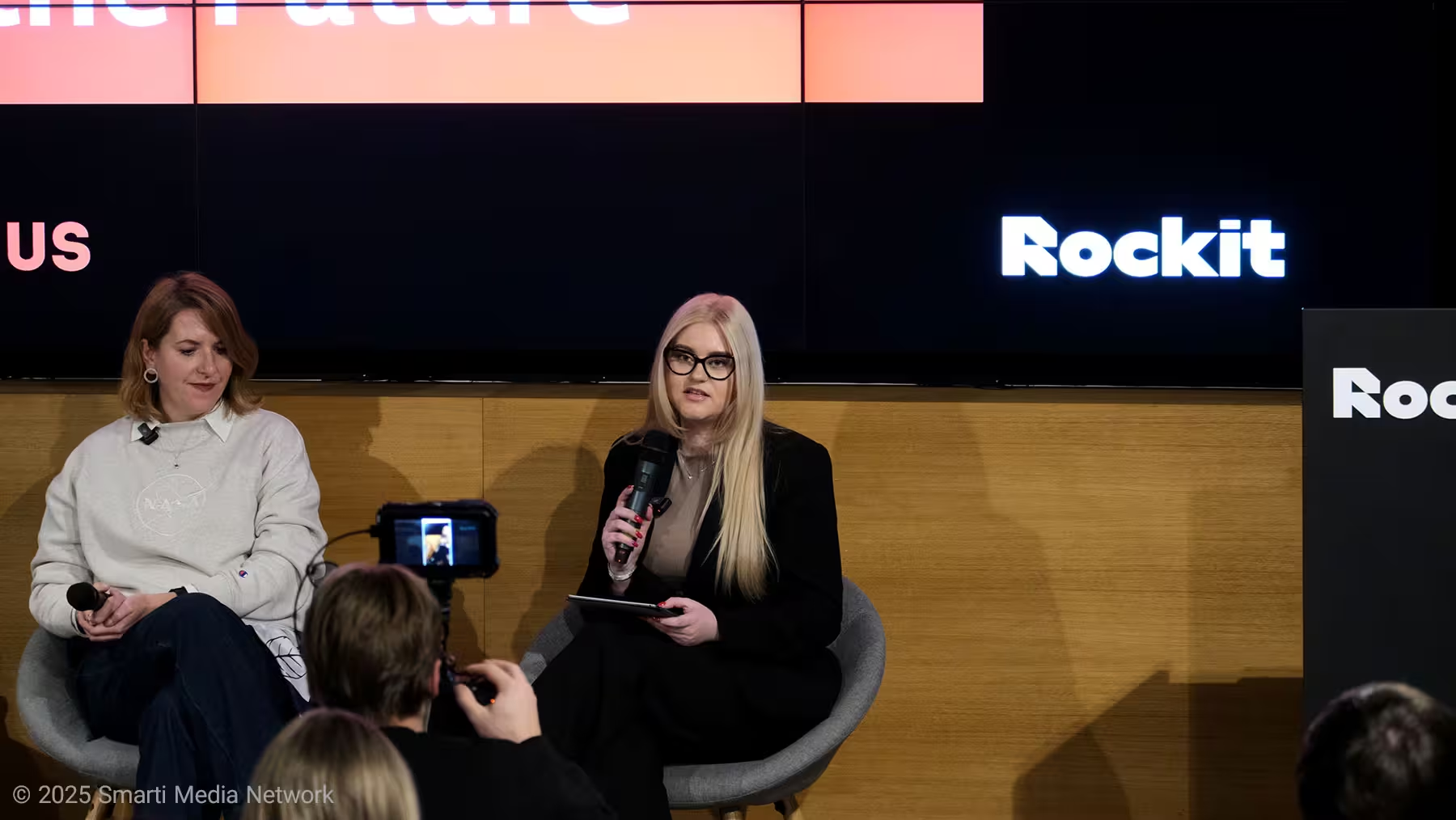
The moderator framed the core question simply:
If your company begins in Vilnius, does the outside world care? And if it does, can that be turned into an advantage?
Nord Security: from hiding the origin to owning it
Laura Tyrylytė described Nord Security’s evolution across more than a decade. When NordVPN launched in 2012, there was no Lithuanian startup scene to speak of. International media rarely recognized the country. Cybersecurity was not associated with Vilnius. For the first years, the company focused almost entirely on product value and technical excellence.
The origin story was not denied — simply irrelevant to how the global market perceived them.
Everything changed after Nord Security became Lithuania’s second unicorn in 2022. At that point the company faced a question: were they still a “global tech product company that happens to be from Vilnius,” or had their Lithuanian roots become part of their identity? Internally, the founders had always been open about their origins, but the communications strategy had not reflected that.
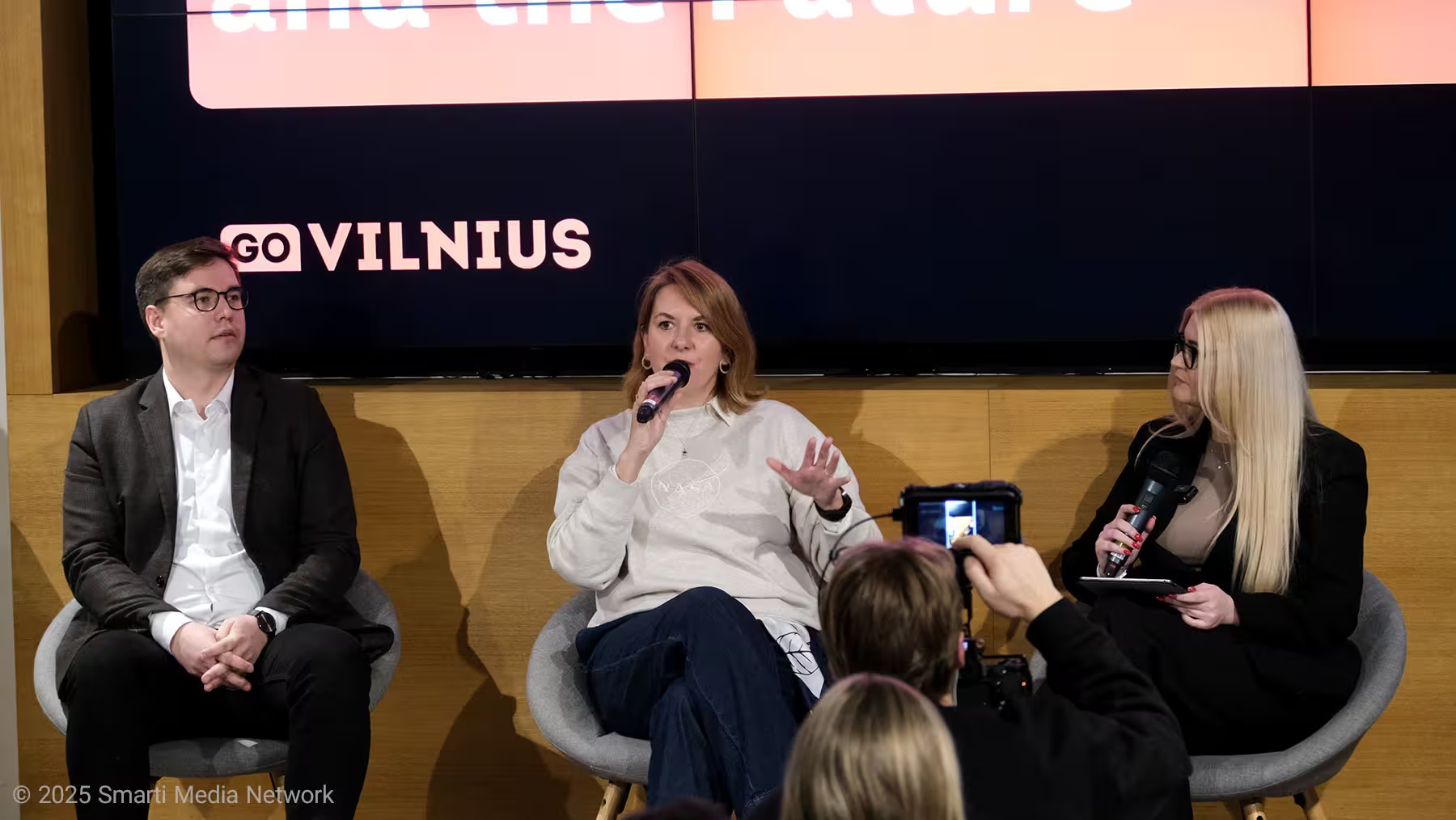
Tyrylytė explained that the team realized something had shifted in the world:
younger generations follow brands that feel real, grounded, and honest about who they are.
Hiding the origin was no longer necessary — and could even feel artificial.
Lithuania’s long-standing emphasis on security, privacy, and digital infrastructure aligned naturally with Nord Security’s mission. The company began introducing “Made in Vilnius” into more of its storytelling, not as patriotic branding but as part of a factual narrative: products built in a country with deep expertise in cybersecurity and IT education.
Tyrylytė recalled how difficult it used to be to speak with international journalists. In the United States, mentioning Lithuania usually produced confusion. The pandemic changed that. Lithuania’s reputation strengthened due to its COVID response, its digital governance, and later its political voice in the region. Suddenly, journalists recognized the name. Some even associated Lithuania with innovation.
This shift had practical consequences. Media visits became easier. Inviting journalists to the headquarters in Vilnius no longer required long explanations. And when they came, they discovered an unexpected ecosystem: cybersecurity companies, laser science laboratories, fintech startups, deep tech research centers. The physical environment — compact, highly technical, jargon-free — told a different story than initial perceptions.
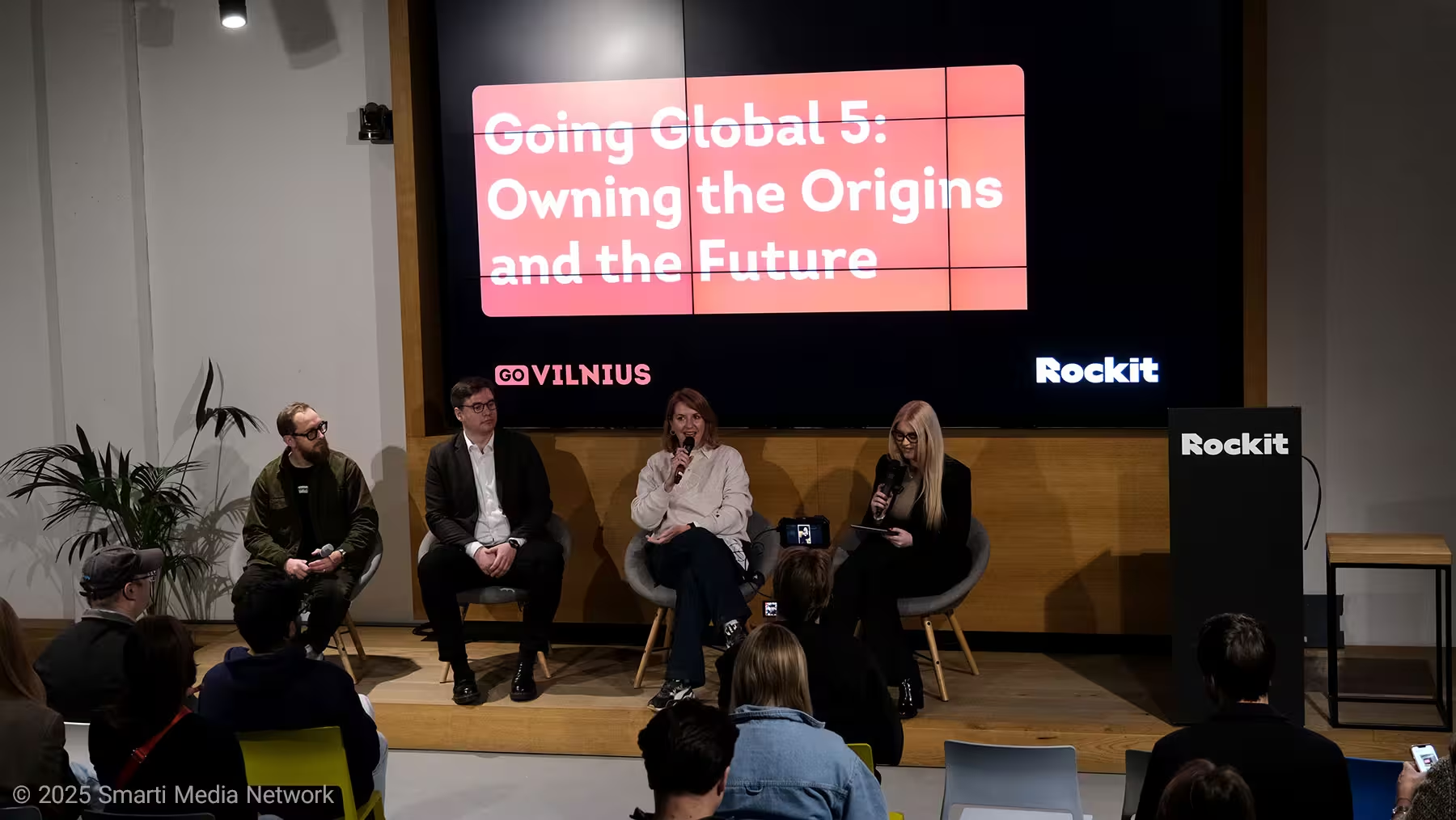
Atrandi Biosciences: rebranding toward authenticity
If Nord Security’s origin story emerged gradually, Atrandi Biosciences reached theirs through a turning point.
CEO Juozas Nainys explained that when the company started, it was named Droplet. The name was chosen to sound familiar to Western ears, partly because Lithuanian names often feel linguistically foreign to global audiences. The team believed a neutral name would reduce friction.
But as the company expanded its product lines and began raising larger rounds, the name no longer carried their story. When they partnered with an American branding agency, they expected suggestions for a slick, Anglo-compatible identity. Instead, the agency pushed them toward authenticity: stop hiding the origin — lean into it.
The new name, Atrandi, is derived from the Lithuanian word for “to discover.” The founders, many of whom studied at Harvard, Columbia, and Oxford before returning home, realized that their decision to build in Vilnius was not an accident but part of the value proposition. Lithuania had become a hub for life sciences, molecular biology, and droplet microfluidics. Talent was strong, costs were efficient, and scientific infrastructure was robust.
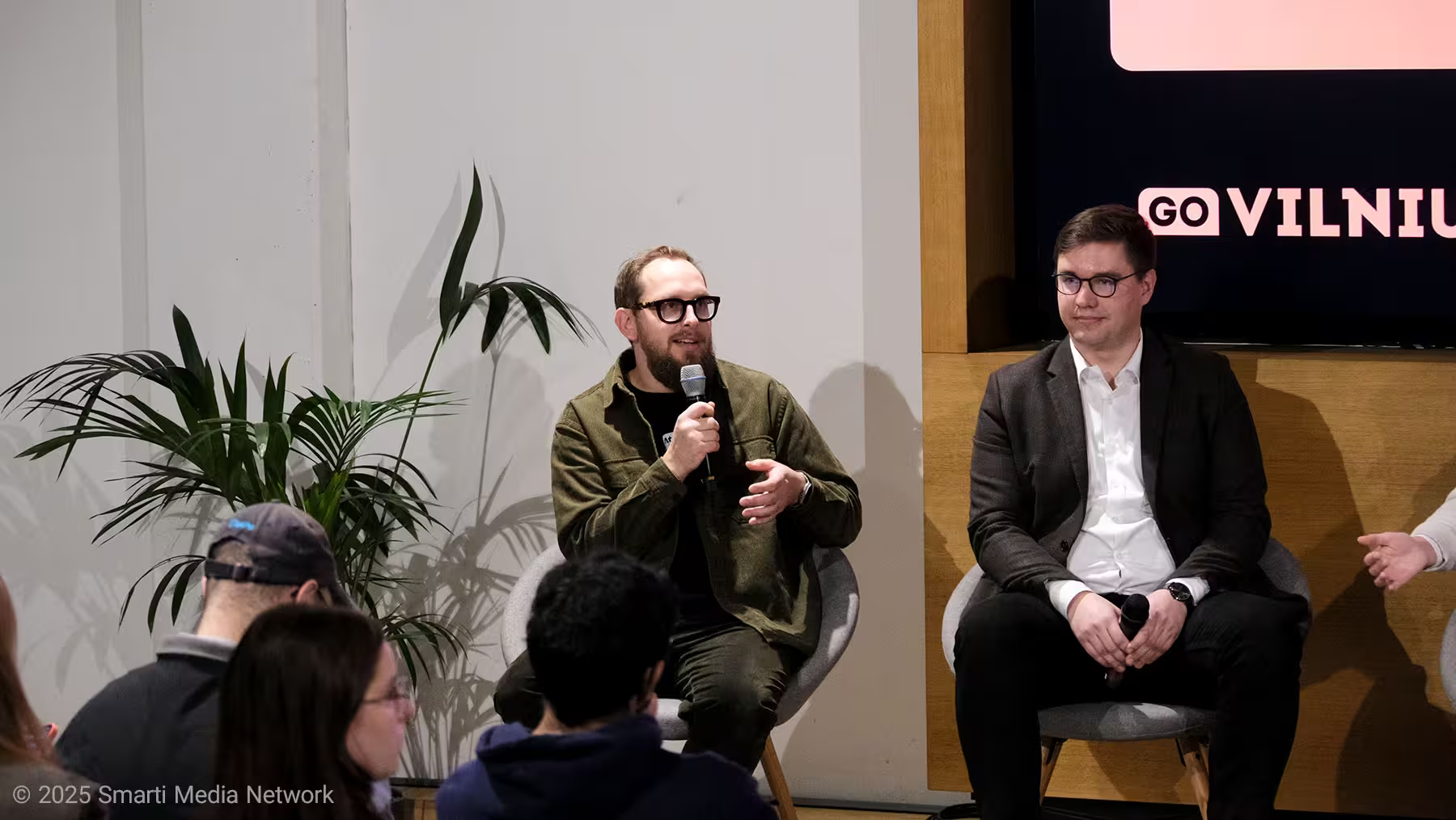
U.S. investors sometimes arrived with uncertainty, unsure what a biotech firm in Vilnius would look like. Their perceptions changed quickly during on-site visits. Instead of a peripheral cluster, they found a concentrated ecosystem with high technical rigor.
Nainys emphasized that for scientists, geography matters less than credibility — and credibility comes from output. When customers began relying on Atrandi’s instruments and seeing publications produced with their tools, the location became an interesting detail rather than a concern.
BIOCITY: when your city is part of the pitch
BIOCITY operates differently from the other two companies: it is not a single startup but a growing cluster and infrastructure project. Marketing Director Virgilijus Kupinas argued that for them, Vilnius is not just an origin story; it is a fundamental asset.
Kupinas acknowledged that biotech giants cluster in places like Boston, London, Copenhagen, and Singapore. Competing at that scale requires more than branding. It requires the ability to show that Vilnius has something the big cities cannot easily offer: highly skilled scientists who are not simply employees but members of a tightly connected community.
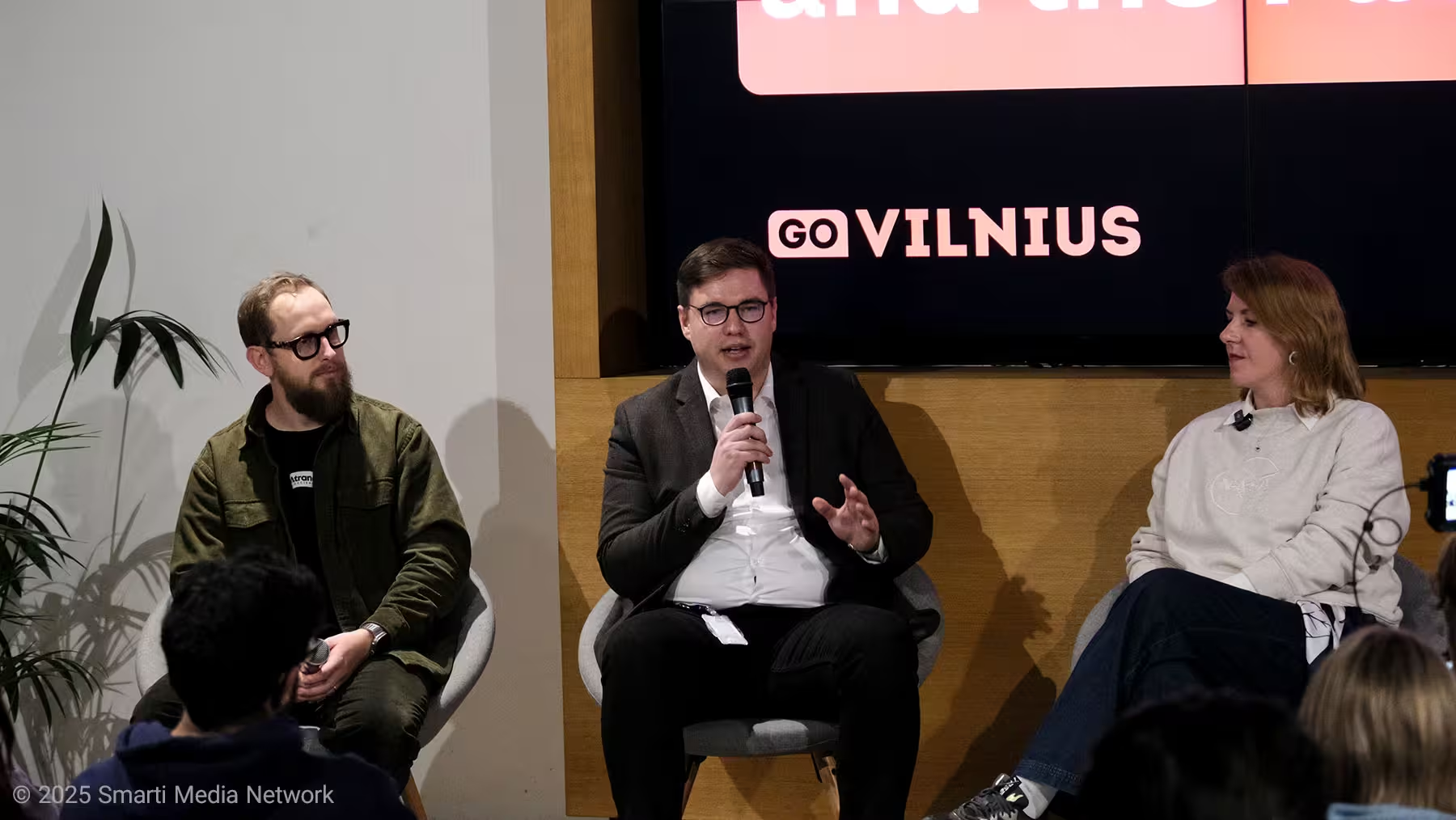
BIOCITY’s approach is straightforward. Rather than trying to convince potential clients and partners through pitch decks and slideware, they invite them to visit. The effect is immediate. Once visitors meet the people behind the cluster — young researchers, experienced engineers, principal scientists — the narrative shifts. The competence speaks louder than the geography.
Kupinas highlighted that Lithuania’s biotech story is not new. It has more than four decades of scientific continuity, beginning with the establishment of the Entomology Institute in 1975 and later the gene engineering laboratories. The specialization in restriction enzymes — still one of the strongest in the region — created a foundation that today supports modern molecular biology companies.
This history gives companies like Atrandi and clusters like BIOCITY an unusual advantage: hard science with long institutional memory. Not many small countries can claim that.
The small-country paradox: does being from Lithuania limit access?
The moderator raised a question familiar to many emerging ecosystems: when you are based in a country of less than three million people, does the world take you seriously?
Nainys answered calmly: Lithuania is small, but the scientific ecosystem is part of a larger Nordic-Baltic region with access to global talent networks. For Atrandi, origin has never been an obstacle in raising investment. In fact, investors often see Lithuania as efficient and highly capable.
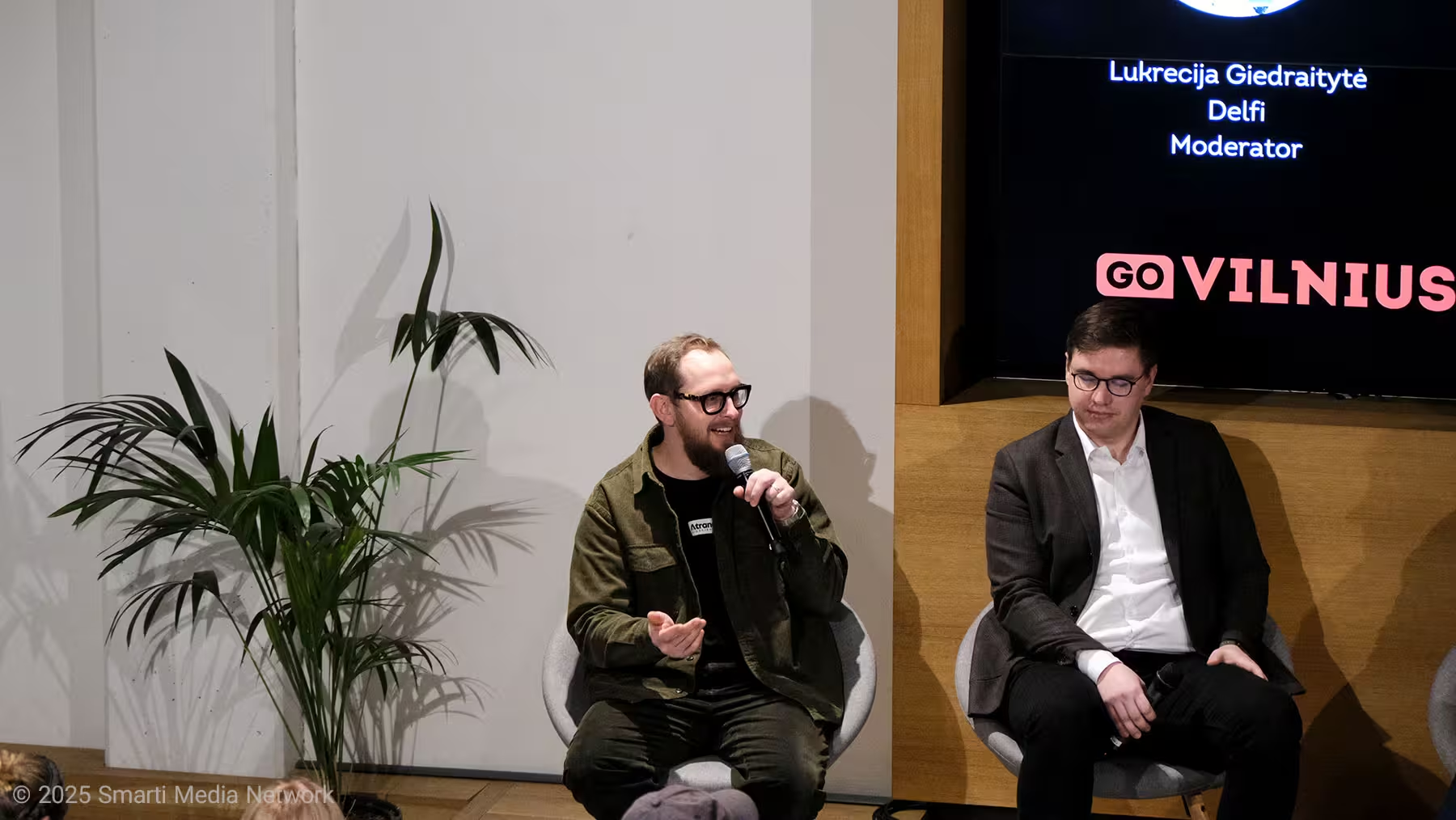
Kupinas added historical context: although companies like Thermo Fisher and TEVA have operated in Lithuania for decades, early-stage biotech investment was rare for a long time. What has changed in the last few years is dramatic: larger venture rounds, more international capital, and more visitors looking for opportunities rather than curiosities.
The moderator pointed out that as global awareness of Lithuania increases, more journalists and investors actually want to travel to Vilnius — something unthinkable a decade ago.
A shift in global identity
A recurring theme across all speakers was the recognition that Lithuania’s reputation has undergone a visible transformation. For years the country was a blank spot on the map for many. But a combination of political clarity, technological infrastructure, and the rise of a new wave of startups has altered that perception.
For companies like Nord Security, this change means international media no longer require geographical explanations before the interview begins. For Atrandi, it means biotech customers do not treat Lithuania as an anomaly. For BIOCITY, it means that Vilnius itself can be used as proof of capability: a condensed ecosystem where people know one another, collaborate easily, and move fast.
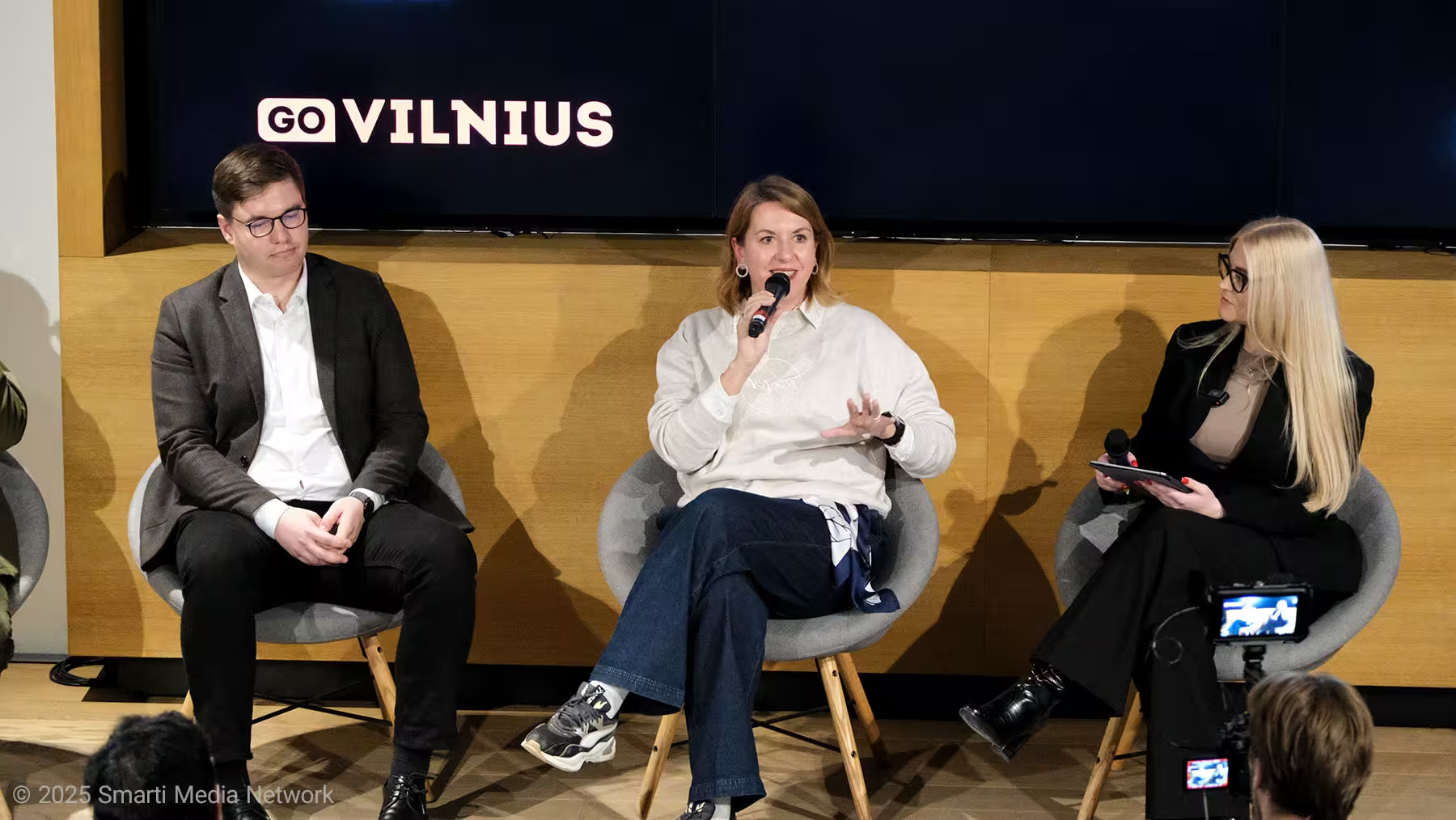
Each company reflected the same conclusion from a different angle:
origin becomes an advantage only when you stop apologizing for it and start articulating it.
The panel’s quiet consensus
Although each company works in a different industry — cybersecurity, biotech tools, biomanufacturing — their experiences converge:
Vilnius is small, but it is not peripheral.
Its scale is part of its utility.
Its talent is measurable.
Its reputation is rising.
And perhaps most crucially: global companies no longer need to dilute or disguise their Lithuanian identity. Instead of treating their origin as a detail to be concealed, they now integrate it into the narrative as evidence of credibility, stability, and depth.
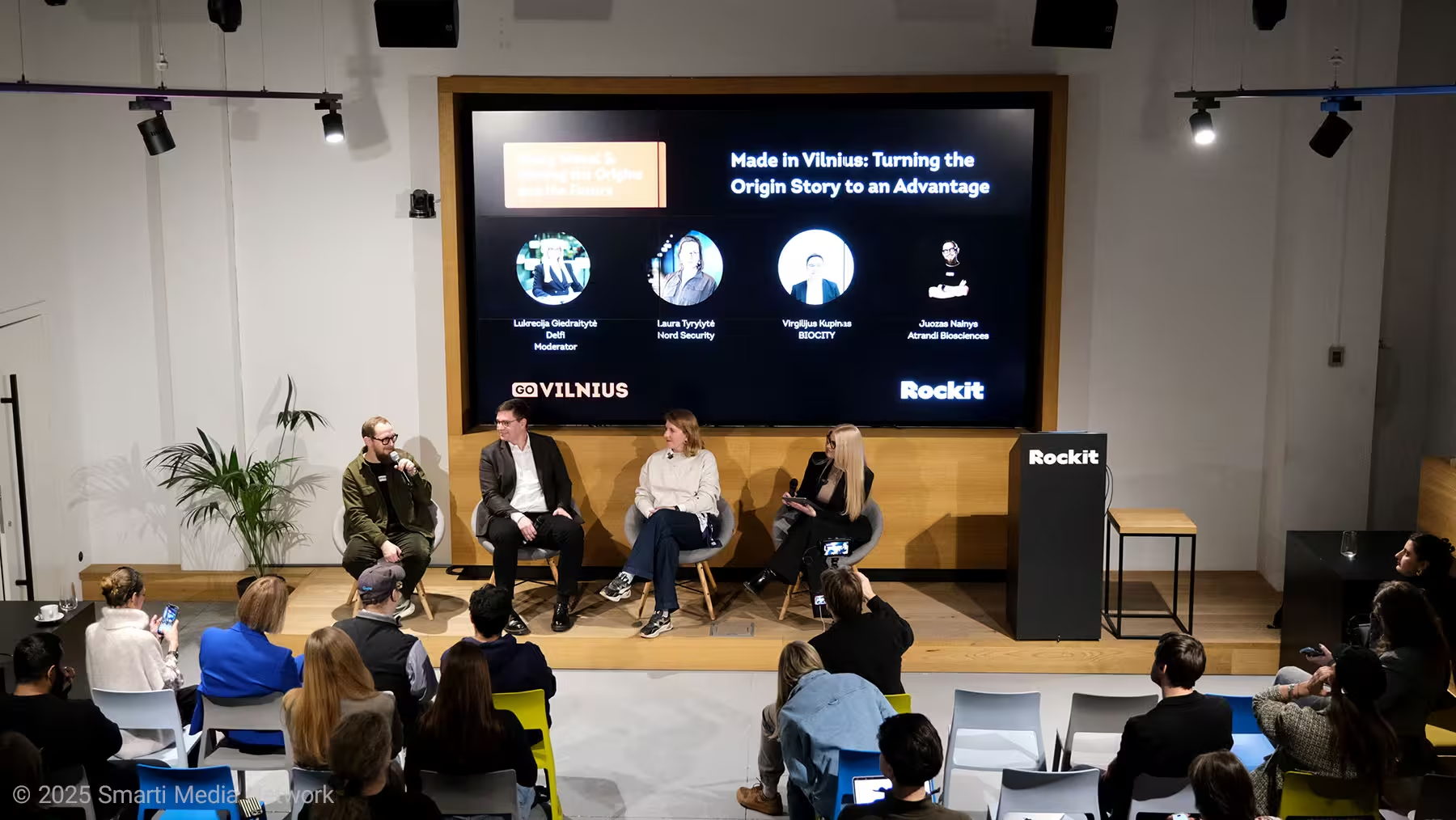
Beyond the stage
As the session closed, the moderator noted that what matters is less the marketing value of origin and more the structural value: how a place shapes the team, the culture, the process, the speed of iteration, and the attitude toward solving problems. The companies on stage were living examples that “Made in Vilnius” can be more than a label — it can be a strategic resource.
If the rest of the world continues discovering Lithuania the way journalists and investors have been discovering it lately, the city’s role in Europe’s tech and biotech map may expand far beyond its physical size.
Comments
Marius
is it really enough to just own the origin? feels great for PR, but regulatory hurdles, supply chains, scale — location still bites. anyone got hard data?
bioNix
ive seen this in our lab — investors flip after on-site visits. slides dont cut it. wetlab scale in a smaller city is messy but possible, just needs patient capital
atomwave
wow didnt expect Made in Vilnius framed as strategy, but ok. small city hustle -> real credibility. curious about talent retention tho, salaries vs bigger hubs?

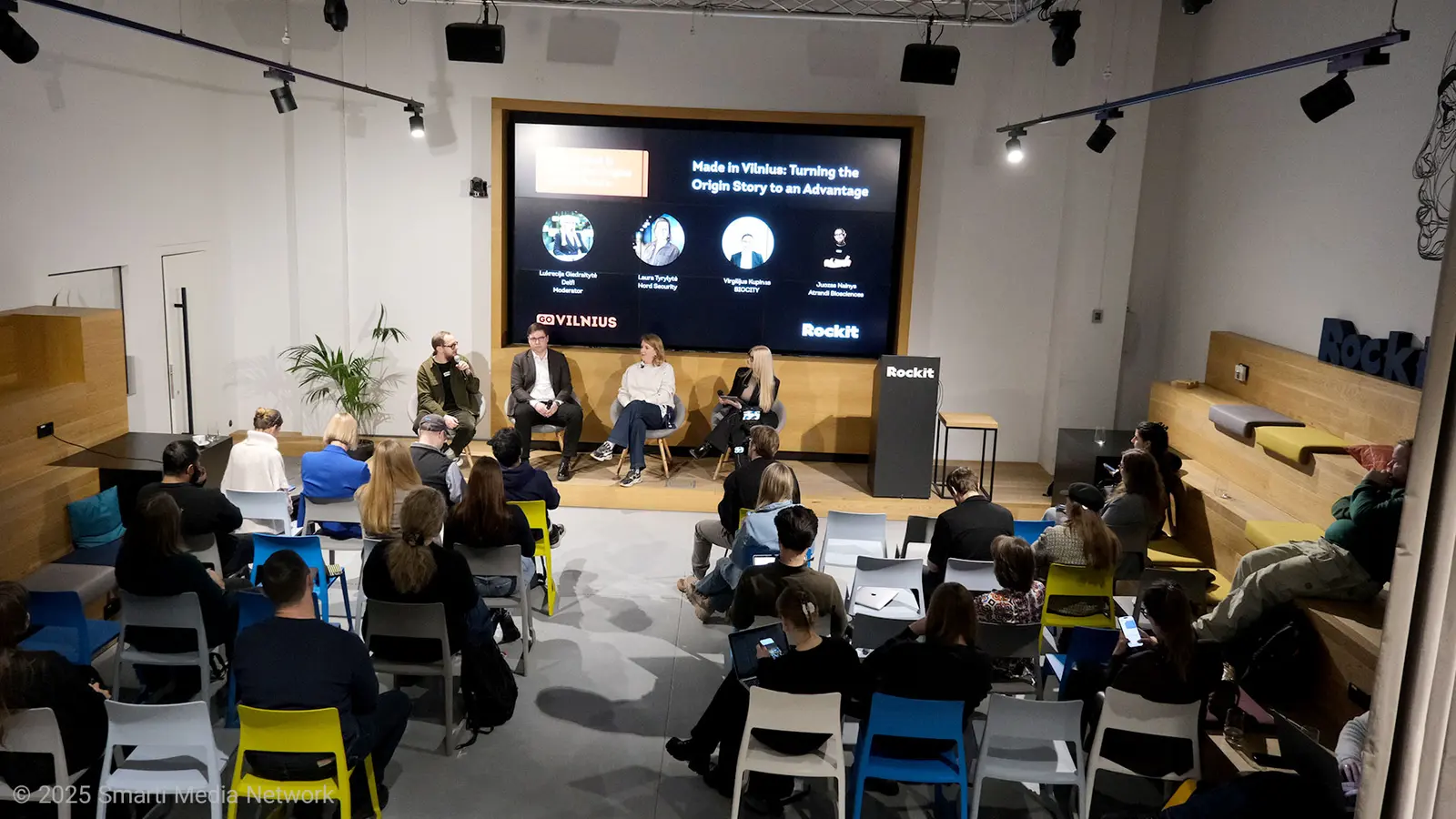
Leave a Comment